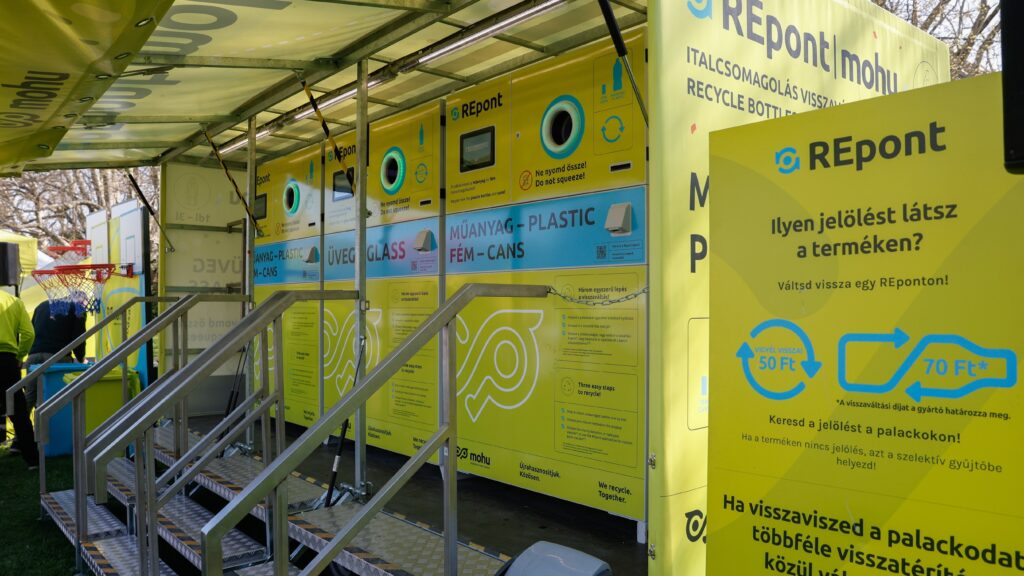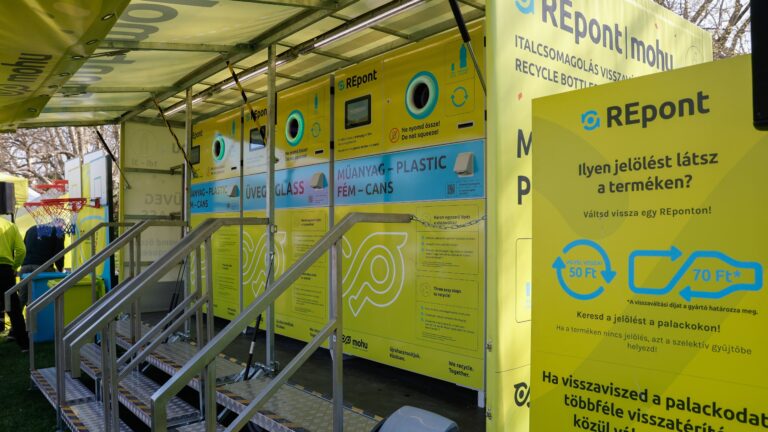Theoretical and Practical Background of the ‘Hungarian Family Policy Model’
When addressing the issue of demographic crisis, various questions arise. Why do we have to think about demography? How far ahead should we look? Does it matter to us what the world, and our continent within it, will look like in a hundred, two hundred, or a thousand years? Will there still be Hungarians? Will there be Europeans? And if so, in what way will their lives differ from or resemble our own?
We Hungarians know that demographic questions are decisive for the future of Europe, including Hungary. It makes no difference how rich our culture is, how effectively our economy performs, how competitive our level of skills and knowledge is, if our population gradually dwindles and disappears. We also know that the future of Europe and Hungary lies in strong families and strong communities.
Some disagree with this approach, saying that environmental challenges, social equality, or even the rule of law are the decisive factors in our future, and that having children and upholding the traditional family model are far from being the solution and in fact, they are the problem. According to the Western mainstream, having a child is a private matter, and thus the state has no duty to support the establishment of families. Some even go so far as to claim that having children is destroying our planet.
Instead of encouraging migration, we believe that helping young Hungarians to start a family is a more straightforward solution
The Hungarian government has been putting families at the centre of its decision-making process since 2010, and this approach has since been embodied in a specific Hungarian family policy model. We have decided to tackle the demographic challenge by strengthening families through effective, predictable, sustainable, and consistent family policies. The Hungarian people have made it clear that they do not see demographic challenges as merely mathematical or labour market problems, which might be solved by bringing mass external resources to Hungary. Instead of encouraging migration, we believe that helping young Hungarians to start a family is a more straightforward solution.
Creating the conditions for family-friendly governance
In 2010, our political community received a historic opportunity from the electorate to lead Hungary out of an economic, political, and moral crisis to recover and to create a predictable future for the Hungarian people after eight years of incompetent leftist rule. It was not easy.
In addition, Hungary has had to face a demographic crisis that had been building for forty years. The Hungarian population has been steadily declining since 1981, as a result of which the number of young people of childbearing age has also drastically decreased.
After the financial crisis of 2008–2009, wherever we looked we saw failed attempts at crisis management, of a sort which not only negatively affect people’s daily lives in a material sense, but over the longer term also loosen national values, culture, and traditions. Financial assistance was offered, but at a price, and paying that price entailed more than an economic burden on those who took advantage of it. We did not want either the restrictions or the patronizing diktats of various international bodies: the Hungarian people had already had enough of ‘crisis management’ conducted by left-wing administrations. We were also forced to recognize that unless we took on the demographic challenge, helping to build strong families and communities, it would be impossible to create a successful nation within a single decade.
That is why we had to work out a specific Hungarian path, a specific Hungarian response to the challenges ahead. The central element of this was, first, successful economic recovery and then the growth trajectory. Only a stronger economy, backed by successful policies could create the financial conditions necessary for family-centred governance.
Family-focused government policy was thus born out of an economic, political, and moral crisis. At the same time, it is important to stress that its objective is not only to lead the country out of the demographic crisis, but also to morally strengthen families, support family-friendly thinking, and provide protection for family-centred Hungarian communities in a world which increasingly rejects or downplays traditional values.
The Hungarian model
We did not seek to follow the mainstream in tackling the economic crisis, while when it came to tackling the demographic crisis there were hardly any models to follow. In the years after 2010 we had to invent and construct the Hungarian family policy model which exists today.
Without family-centred governance, we would have been wrong on two points, and would have continued on the wrong path to this day. Firstly, it would have been wrong not to take into account the negative economic and cultural consequences of the demographic crisis. Without a strong, thriving, rejuvenating community, Europe and Hungary are doomed to economic and cultural death.
Today Hungary has the second highest proportion in Europe of respondents who would ideally like to have a large family
Secondly, it would have been wrong to ignore the wishes of Hungarians themselves. After all, when we put families at the centre of governance, it is not just a matter of seeking to halt population decline, but also of reflecting the real needs of the Hungarian people. Hungary is one of the most family-centric nations in Europe. Today Hungary has the second highest proportion in Europe of respondents who would ideally like to have a large family; nine out of ten Hungarians believe that the government should support families having children over encouraging immigration; Hungarians also show the highest approval in Europe of supporting young people to ensure they can afford to start a family as soon as they are ready. Not to mention the fact that, according to research, Hungarian young people on average want to have at least two children.
Supporting families is a rational, sensible, common-sense policy: the best investment. An effective family policy not only brings clear economic benefits to the country (as demonstrated by the example of Hungary), it is also a duty. Unless our family values are preserved, it will be impossible to preserve our culture. The family is the backbone of the community. Children are precious and their wellbeing must be ensured.
For this reason, we are working to provide all possible assistance to young Hungarians, so that they can have the number of children they desire, and so that families raising children can live in as much security as possible. To achieve this, we had to lay down certain principles:
Reversing demographic trends by relying on our internal resources, instead of immigration.
Brussels and some Western and Northern European states see the problem as a simple mathematical formula: if the population is declining in one region, it can be replaced by people from a region where rapid population growth is causing challenges. However, this means ignoring the needs of young Europeans, as well as many cultural, religious, and linguistic differences. We are taking the path that seems to us more straightforward.
Promoting life and family-friendly values instead of gender ideology.
Our Fundamental Law (the Hungarian Constitution) likewise ensures the protection of children and the family; a significant proportion of family benefits can be claimed even during pregnancy.
Linking family benefits to work.
We do not support an aid-based approach, and the goal is for parents to want to live for their children, not live off them. Thanks to a successful economic policy, they also have the opportunity to do so: unemployment fell from 11 per cent to 3.5 per cent between 2010 and 2020.
Separating family policy from social policy.
Regardless of social status, we must help people start families. Having a child should not increase one’s risk of falling into poverty. We are working to ensure that there are no financial obstacles to having a child, and that having children does not put families in a worse financial situation. Mothers receive more money until the child is six months old than they earned before pregnancy.
Continuously expanding family benefits.
Our basic principle is that existing benefits should never be taken away, as having a child is a lifelong decision that requires stability, predictability, and security. Whatever crises come, we will not try to save money by cutting back on families. Perhaps there is no better example of this than the home-building programme launched on 1 January 2021, which we announced in the midst of the economic crisis caused by the pandemic.
The primary consideration in all government decisions is to examine the interests of families. As a result, the family support system is diverse, helping families in all kinds of life situations.
We firmly believe that this comprehensive approach will help to reverse the negative population trend in the long run. The key phrase is ‘in the long run’, since it takes decades to reverse trends which have been ongoing for decades. We are not thinking in terms of election cycles, but are looking for meaningful, long-term solutions. But in order to talk about a specific Hungarian model, clear theoretical considerations alone are not enough. There is also a need for this model to be able to show meaningful results.
All this, combined with the support for expectant parents, home creation programmes, and mortgage loan repayment, now adds up to significant assistance for young Hungarians
In ten years, we have succeeded in building the broadest family support system in Europe. Tellingly, next year we will be spending three times more on family support than in 2010, and it is worth pointing out that this represents 5 per cent of GDP—almost twice the OECD average. The Hungarian model is also characterized by such unique benefits as a ten-million-forint (over $30,000) interest-free loan to expectant parents, which never has to be repaid if the couple has three or more children. We provide significant support for home-creating, and for mothers with children we suspend, reduce, or even entirely waive student loan debt. Today, in Hungary, thanks to the family tax system, a middle-income family with three children pays essentially no personal income tax (PIT), and we provide a lifetime PIT exemption for mothers with four or more children. In addition, from 2022, young Hungarians under the age of twenty-five will also be exempted from PIT, and we will return the PIT paid in 2021 to nearly two million parents. We are expanding day-care provision so that parents can keep their children safe even if they are both working, making it easier to reconcile family and work life. The number of day-care places has more than doubled since 2010. All this, combined with the support for expectant parents, home creation programmes, and mortgage loan repayment, now adds up to significant assistance for young Hungarians. We help couples with infertility problems, single-parent families, and parents raising a child with health problems. And last but not least, we also support adoption.
A positive process started in 2010, as a result of which more and more opportunities are opening up for Hungarian families every year. The data also show that we are moving in the right direction. Since 2010, the desire to have children has increased by 24 per cent, the largest increase between 2010 and 2020 of any EU country. Marriage is now back in vogue, with the number of marriages at a 40-year high and divorces at a 60-year low, while the number of abortions has decreased by 41 per cent in ten years.
The international context
One of the achievements of the last ten years is that we have managed to focus on thinking about families, and to establish a national consensus on the need to support families. Today, the Hungarian people agree that the key to the future lies in supporting families, and that family-friendly governance is needed.
Abroad, however, opinions on family-centred governance are mixed. We have developed a unique model, and at times have been at the forefront of family-friendly efforts worldwide; as such, significant and often well-funded attacks have been directed against us from many sides. Some argue against having children because every new life puts a greater burden on our planet. No one ever stops to ask who we are protecting the Earth for, if not our children and our grandchildren. The traditional family model is under ever more sustained attack, and many initiatives are seeking to unpick the family paradigm of mother, father, and children, replacing it with new roles and family models. They are depriving parents of the opportunity to decide for themselves on their children’s education, including sex education. As part of these efforts, the Hungarian model is attacked for ideological reasons, its results denigrated and its aspirations ignored.
However, the good news is that in more and more countries, approaches focusing on family values are being considered, and many have begun to praise the Hungarian model. Not without reason. Family values remain important to most people. According to a recent survey, Europeans—to varying degrees, but overall—consider it important to support large families and young people, and to strengthen a family-friendly mentality—so it would appear that many citizens of other countries would like to enjoy the opportunities available to families here.
The increasing strength of the pro-family camp and Hungary’s leading role within it were clearly demonstrated at the fourth Budapest Demographic Summit, held on 23–24 September 2021, at which seventy pro-family decision-makers, thinkers, experts, corporate and church leaders from seventeen countries spoke. Nine European and seven EU member states were represented at at least ministerial level. These included Prime Minister Andrej Babiš of the Czech Republic, Prime Minister Janez Janša of Slovenia, President Aleksandar Vučić of Serbia, former US Vice President Mike Pence, Serbian Member of the State Presidency of Bosnia and Herzegovina Milorad Dodik, Romanian Deputy Prime Minister Hunor Kelemen, and, of course, Prime Minister Viktor Orbán of Hungary.
This, then, is where we stand, after ten years of family-friendly governance. We have laid the foundations, built the framework, and demonstrated that the model can work. Perhaps we can also state that Hungarian families live better today than they did before 2010; that today it is better than it used to be to start a family and have a child in Hungary. The international space is full of conflicts, but the pro-family camp is growing stronger, and more and more people are realizing that the Hungarian model can reverse negative demographic trends and make young people aware: they write the future, the decision is in their hands.
If we receive a mandate from the electorate, we will continue this work in the years to come.
Translated by Tom Sneddon








